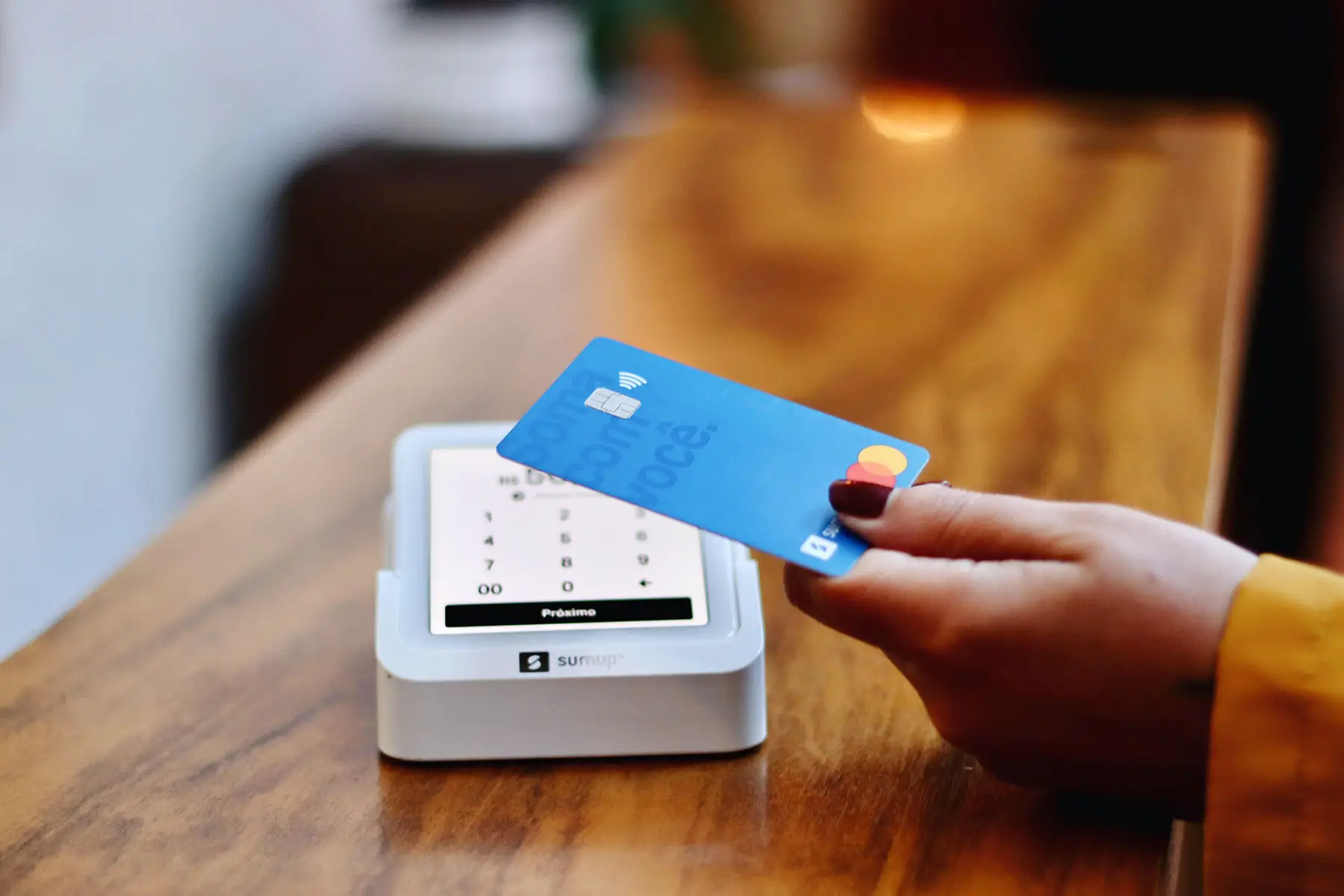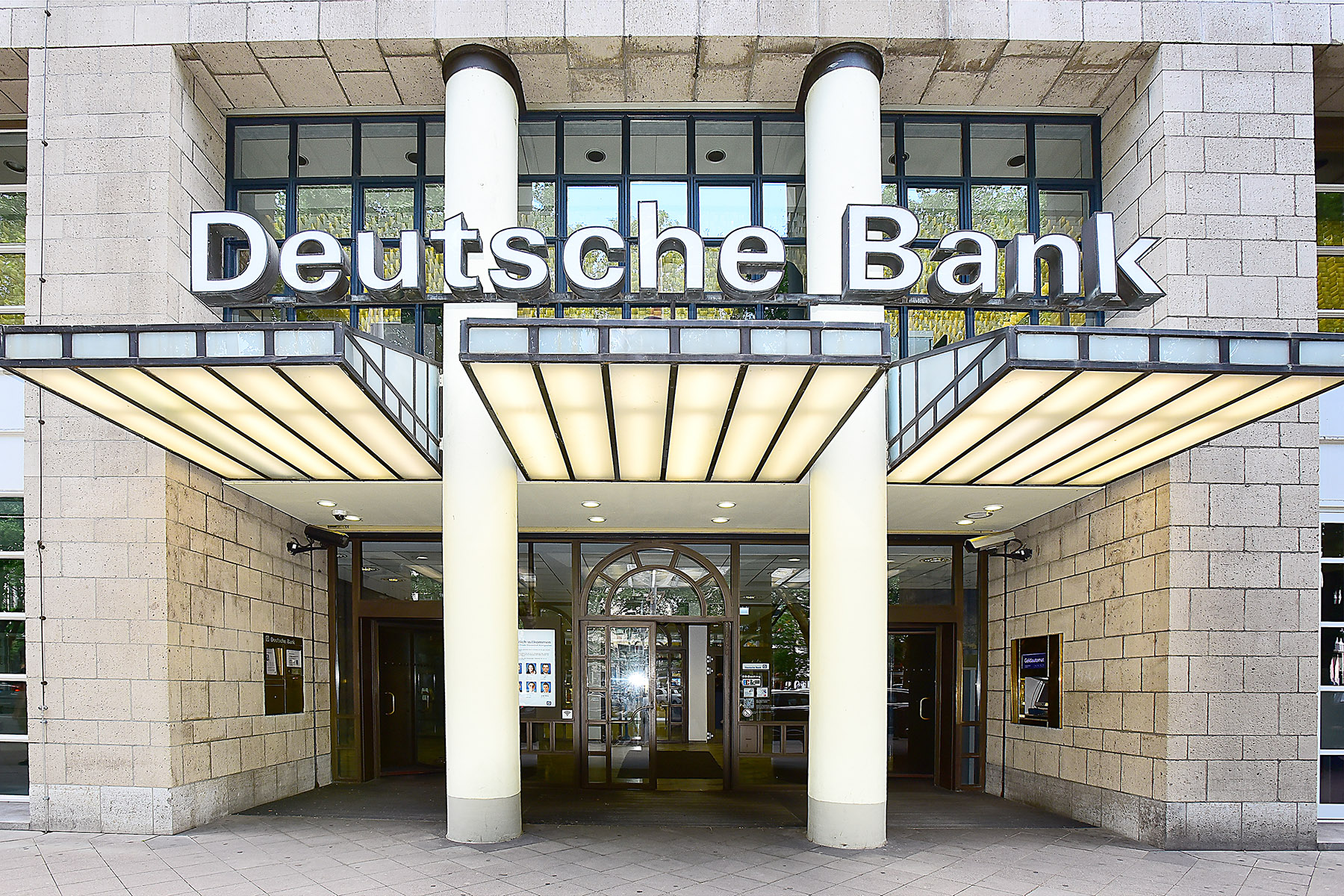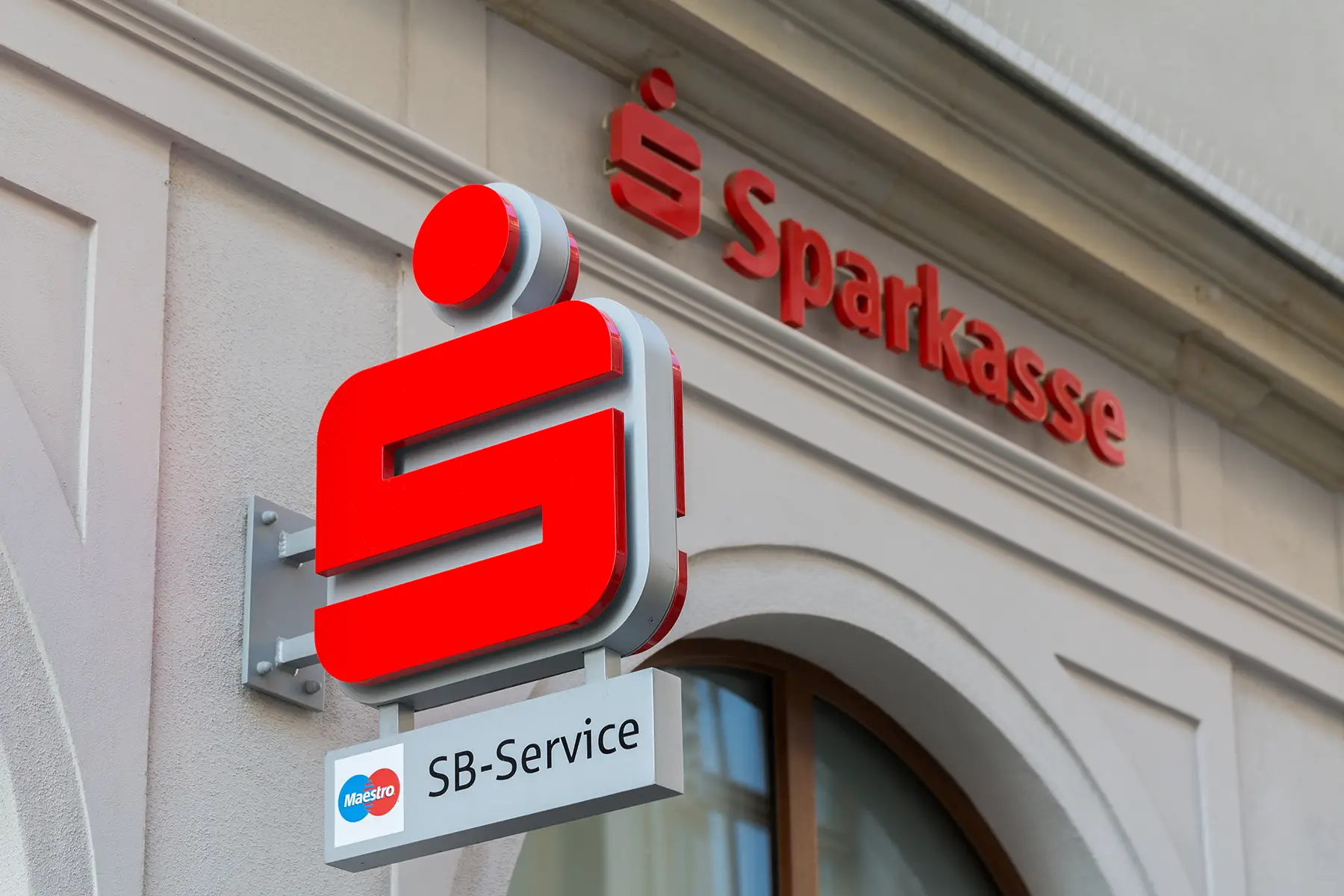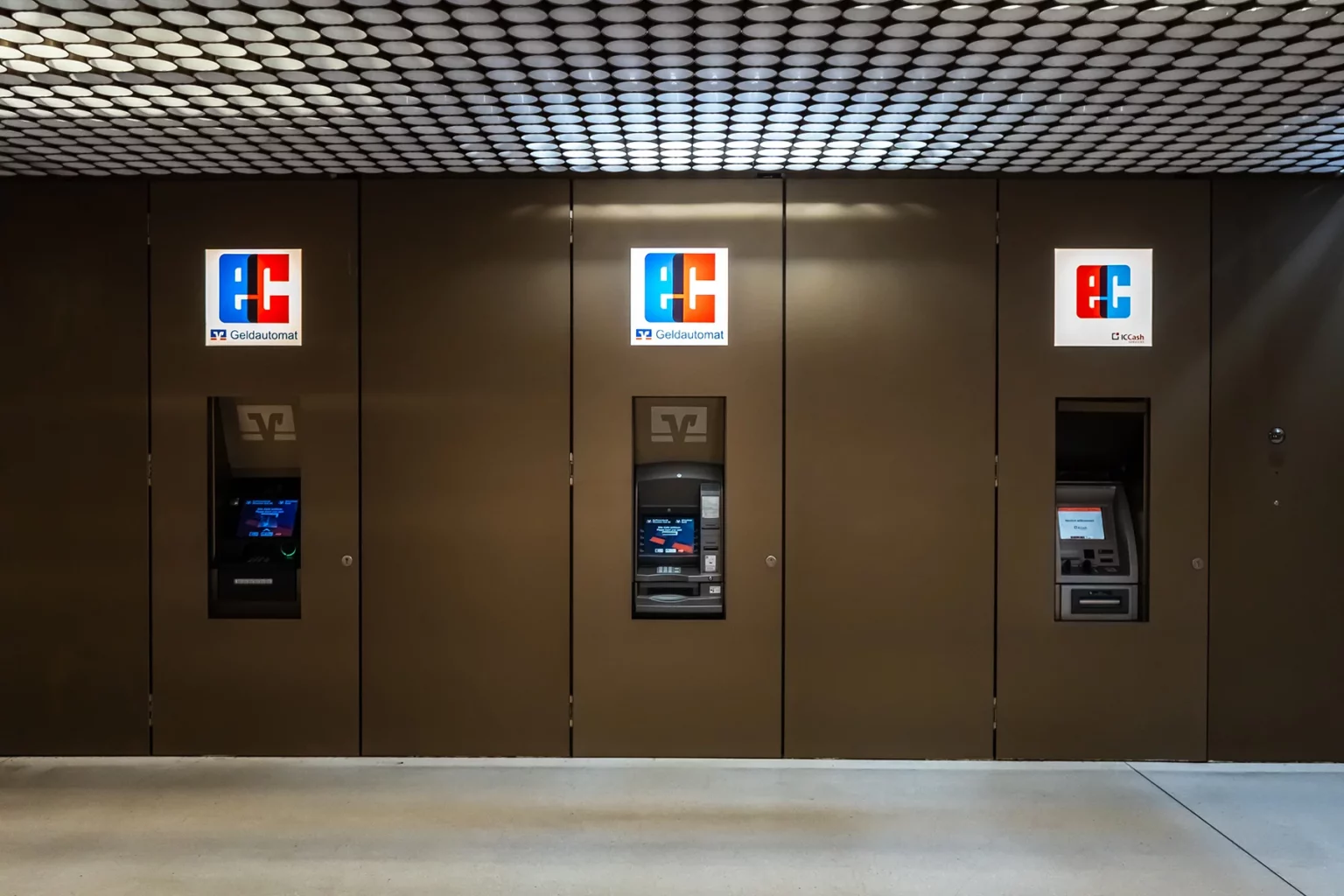Opening a bank account in Germany is vital to setting up your new German life. You need to arrange utilities for your new home, arrange German TV and internet services, and get German insurance coverage as required by law; this all relies on having money in the bank. This helpful guide provides all the information you need on opening a bank account in Germany, as well as advice on choosing the right bank as an expat. It includes sections on:
- Banking in Germany
- Do you need a bank account in Germany?
- Before you open a bank account in Germany
- Types of German bank account
- What the German banks offer
- Choosing a bank account in Germany
- How to open a German bank account as an expat
- Banking services in Germany
- Managing your bank account in Germany
- Changing banks or closing an account in Germany
- Useful resources
bunq
With bunq, you can open your full bank accounts in just five minutes using nothing more than your mobile phone. You get real-time access to your account, instant payments and dedicated customer support available in English, Dutch, German, Italian and Spanish.
Banking in Germany
Germany has a three-pillar banking system made up of private commercial banks, public savings banks (Sparkassen and Landesbanken), and cooperative banks (Genossenschaftsbanken).

There are also many international banks, online banks, and mobile banks in Germany. The Deutsche Bundesbank is the national central bank, while the Federal Financial Supervisory Authority (BaFin) is the country’s regulator of banking and financial services. See our guide to banking in Germany for more details.
Do you need a bank account in Germany?
You don’t necessarily need to open an account with a German bank if you are living in Germany. You need some sort of account to send and receive payments. This could be an international bank account (either with a bank based in Germany or one set up to carry out financial transactions for German-based customers) or a German mobile bank. You will need an account that can make regular payments such as utility bills or German insurance payments. You’ll have to prove that you have an account that is operative in Germany to take out a German mortgage.
Before you open a bank account in Germany
If you move to Germany and don’t have a German bank account, you can manage your finances initially from an overseas account. Most German businesses take the major international debit and credit cards such as Visa, Mastercard, and American Express. However, if your overseas account is with a bank that doesn’t have a location in Germany, you’ll probably rack up a lot of charges. See our guide to banking in Germany for more information on this.
If you’re worried about having a period without a German bank account, you can open up a non-resident account before you move with many online or mobile German banks (direktbanks). Big international banks such as HSBC and Citibank operate in Germany so, if you bank with these, you can make inquiries about transferring your account to Germany before you move.
Types of German bank account
German banks offer different types of account to customers. The main types of account on offer include accounts such as:
Current account (Girokonto)
Current accounts are the standard type of bank account in Germany. These are for receiving your salary in Germany and paying bills. Many German banks offer both general current accounts and specialized accounts such as those for students and young people.
Savings account (Sparkonto)
These can be either instant access (Tagesgeldkonto) for saving money or fixed deposit (Festgeldkonto), which is a higher interest account with a minimum deposit and a fixed period that the money has to stay in the account. The latter is used more for investment banking purposes. Savings accounts can usually be opened by either German residents or non-residents from abroad.
Non-resident account
Standard current accounts are generally only available to German residents. You typically need to have a permanent address in Germany to open an account. Many online-only and mobile-only German banks also offer accounts to those living overseas. These are useful for those planning to move to Germany or those who work in Germany.
Digital and mobile accounts
The major German banks now offer internet banking as well as mobile accounts that are available through banking apps. There are also many online-only and mobile-only banks operating in Germany. See our guide to mobile banking in Germany for more information.
Offshore accounts
Expats living in Germany may find that opening an international offshore bank account is the best way to manage their finances. This is particularly helpful for anyone who works abroad, spends a lot of time in more than one country, or frequently transfers money between countries. Offshore accounts are located outside the holder’s country of residence and usually offer distinct advantages such as a wider range of cross-border services and lower taxation on funds. They are generally considered to be stable, reliable, and secure. Both Deutsche Bank and Commerzbank have international arms that offer offshore banking.
What the German banks offer
If you are shopping for a bank account in Germany, you have a wide range of choices. First, you will have to decide which type of bank you want to open an account with: a private German bank, public savings bank (Sparkassen), cooperative bank (Volksbanken/Raiffeisenbanken), international bank, or an online bank (direkt bank).
Here is a summary of what some of the main banks in Germany have to offer:
Private German banks
The private bank with the largest customer base is the Deutsche Bank, which, along with its subsidiary Postbank, serves about 12 million clients. Commerzbank follows with around four million clients. Opting for one of the larger and more popular German banks may be the wiser choice, particularly for foreigners. These banks have more experience working with foreign customers as well as with foreign banks. They are often more accessible, especially if you travel abroad.

Deutsche Bank offers three current accounts: the Active Account, which is compatible with online and mobile banking and has an initial free period (€5.90 a month thereafter); the BestKonto, which is a premium account that offers a Mastercard Gold credit card and international health insurance options for €11.90 a month basic price; and the free Young Account for students, apprentices, and volunteers from EU member states aged under 30.
Commerzbank also offers three current accounts – the Girokonto is the free basic account that comes with a debit card and can be opened up as a digital or mobile account; the KlassikKonto includes an extra Mastercard debit card and money transfer options for €4.90 a month; and the PremiumKonto is €12.90 a month and includes up to four credit cards, free cash withdrawals at all ATMs, and insurance options. The Girokonto and KlassikKonto accounts both offer €100 as a starting balance, and you get an extra €100 for recommending new customers to the Girokonto account.
HypoVereinsbank also offers four current account options: a free starter account for students, apprentices and those aged under 26; an Active Account which costs €2.90 a month, plus €5 a year for the girocard debit card; the Plus Account for €7.90 a month with a wider range of money transfer options and credit cards; and the Exclusive Account with services including worldwide withdrawals for €14.90 a month.
Sparkassen
Sparkassen are savings banks held by public shareholders such as cities or communities. They are very popular with German customers. You will find Sparkassen in the major German cities, with well-known examples being BerlinerSparkasse, Stadtsparkasse Münich, and Frankfurter Sparkasse.

You can open a basic current account with a Sparkasse (a checking account or Girokonto). This gives you an EC card, a debit card, mobile banking options, as well as different account models to choose from. There is also an instant savings account and a fixed-term deposit account. To open a current account with a Sparkasse, you need to be a German resident.
Volksbanken/Raiffeisenbanken
These banking cooperatives and credit unions make up the third pillar of German banking. Many of them operate under the Volksbanken und Raiffeisenbanken umbrella. There are different current accounts offered, such as a basic account that offers free banking, debit card payments, money transfers and online banking (providing the individual Volksbank you have an account with is set up for this). Cooperative banking is popular with those who favor a more communal approach to banking. As with Sparkassen, you need to live in Germany to open an account.
International banks
Germany, as one of the leading post-industrial economies of the world, is an attractive location for international business. This is partly why you can find local branches of many international banks in Germany. The advantage of international banking is that you can open an account in your home country and transfer the account to a German branch.
International banks in Germany offer expat-friendly services and similar accounting options (at similar prices) to the major German banks. These include:
Digital and mobile banks
Digital banks in Germany are called direktbanks. They don’t offer local branches but use the cash machines of other banks. As they save on those costs, they are able to offer often more financially attractive conditions. Some direktbanks offer free banking accounts with no minimum deposits.
Popular online and mobile banks and banking alternatives in German include:
See our guides to digital banking in Germany and mobile banking in Germany for more detailed information.
Choosing a bank account in Germany
For those looking to open a German bank account, the best banking option depends on what you’re looking for. There are a number of different factors that you might want to consider, including:
- Costs – many German banks offer basic current accounts for free, although services are more limited. Online and mobile banks are usually cheaper for things such as money transfers. They may be more limited in terms of how many transactions you can perform per month.
- English-language services – if English-speaking staff, websites, and mobile apps are key for you, international and mobile banks will offer this. Larger German multinational banks are also likely to have some English-speaking services. The Sparkassen and Volksbanken less so.
- Range of products and services – expats are more likely to favor services such as free worldwide withdrawals and low-cost international money transfers. Other services add flexibility to the account, such as credit cards, overdraft facilities, and free nationwide ATM use, may also be considerations.
- Ease of access – opening up an online or mobile account will give you 24/7 access to your account. Most of the big banks offer this, plus there are also the mobile-only options.
- Non-resident account availability – if you want to open up an account before moving to Germany, you will need to open an account with a direktbank or an international bank. The account options for national German banks are reserved for customers with German addresses.
To compare different bank accounts in Germany, you can use this comparison tool which is available in English.
How to open a German bank account as an expat
While EU nationals will have no problem opening a simple bank account with a German bank, non-EU nationals have to prove their registration in Germany along with a German work permit. Banks are not obliged to open a bank account for you. You may face difficulties if you cannot show a financial history. The best way to open a German bank account is to turn up to the branch in person with your documentation.
This includes:
- Your passport/photo ID with a valid visa or residence permit
- Proof of address
- Evidence of income/employment (required by many banks, depending on the account you want to open)
- Proof that you are a student, if opening a student account
- SCHUFA credit rating (may be required with some banks)
Also, you must prove your identity at a post office or online by following the post-ident procedure. Accounts can normally be opened within 2-3 working days.
How to open a bank account in Germany from abroad
Some direktbanks allow customers to open bank accounts from abroad. These include bunq, DKB Bank, ComDirect and N26, although in some cases this is limited to EU residents. Some banks allow you to submit your personal documentation online while others, such as bunq, allow you to open an account in a few minutes using nothing more than your mobile phone. If you want to open an account with a German bank before you move there, you will need to have sorted out your German visa and have a German address that you can use for the account. In general, it is easier to open up a German bank account after you have relocated.
How to open a digital or mobile bank account in Germany
You can open up a digital or mobile account with some German banks without visiting a physical branch if they have the capacity for you to provide online documentation. If you have a bank account already and want to switch to mobile, all you need to do is download the mobile banking app to your smartphone or mobile device. Opening an account with a mobile-only or online-only bank is quite straightforward if you have an email address, mobile phone number, and valid ID. See these guides to digital banking in Germany and mobile banking in Germany for more information.
How to open a business bank account in Germany
If you are starting up a business or working as a freelancer in Germany, it makes sense to open up a separate business account to keep your finances separate. In fact, if your company operates as a limited company, having a separate account will be a legal requirement.
The process for opening up a business bank account in Germany depends on what business model you are using. Sole traders and freelancers generally only need to provide the same documentation as private individuals. Partnerships are required to provide details and documentation for all partners, while limited companies need to submit articles of association, business registration details, certificate of incorporation, plus a list of shareholders and trade licenses if applicable. Business accounts for limited companies in Germany need to be opened in person, with the CEO present.
You can also open an online business bank account, such as with Finom, and manage your expenses digitally.
How to open a bank account in Germany for your children
Many German banks offer current and savings accounts for children and young people. Products vary from bank to bank but most German banks allow residents to open accounts on behalf of their children if they are under 18. You will usually need to provide documentation such as a passport/ID for both yourself and your child. Some banks have a requirement that the parent needs to have an account with them too.
What to do if you are refused a bank account in Germany
German banks are under no obligation to grant an account to applicants and may refuse an application on a number of grounds (e.g., failed credit check, not having German residency). If you want to complain about treatment from a German bank, for example, if you feel you have been discriminated against, you can complain to the Financial Ombudsman in Germany. If you are an EU/EFTA citizen, you can also complain to FIN-NET which is the EU financial dispute resolution network.
Banking services in Germany
Banks in Germany generally provide similar services to major banks in the US, the UK, and many other European countries. Besides the usual services of accounts, debit/credit cards, money transfer options, and borrowing options, many German banks also offer:
- Insurances, including vehicle insurance, home insurance, and health insurance
- Mortgage options
- Pension plans
- Investment options
See this guide to banking in Germany for more information.
International money transfers in Germany
For international money transfers, there are alternative solutions to banks that could prove cheaper and more convenient, such as:
Managing your bank account in Germany
You can choose how to manage your money and finances with German banks as many offer a range of service options. These include:
- Face-to-face banking – the number of bank branches in Germany has been reduced in recent years but there are still around 13 physical branches per 100,000 adults, according to 2016 statistics. Banks will have customer service teams as well as specialist staff (e.g. business banking manager) but you will need to check for English-speaking staff if you want a face-to-face meeting and aren’t well-versed in German.
- Online banking – online banking allows 24/7 access to your account and services, and most of the main German banks – including Sparkassen and Volksbanken – offer this. See our guide to digital banking in Germany for more information.
- Mobile banking – you can bank and make mobile payments on your smartphone or tablet, using mobile banking apps, which also include services such as budgeting tools. See this guide to mobile banking in Germany for more information.
Changing banks or closing an account in Germany
Closing a bank account or switching bank accounts in Germany is reasonably straightforward as long as you don’t owe the bank money. However, be careful that you follow the correct procedures and properly close the account down so that you don’t accrue any charges. If you want to switch to another bank, the best way of doing this is to open the new account first. In order to close an account in Germany, you will usually need to fill out and sign an account closing order. This will officially close the account, but before closing a bank account in Germany, make sure that you:
- Check there are no penalties for closing an account before a certain date. If you opened an account with a special offer attached, there may have been a condition to keep the account active for a minimum period.
- Get confirmation from the bank in an email or letter that the account is officially closed.
- Cancel all future payments coming out of the account, such as direct debits and standing orders.
- Inform your employer and anyone else likely to make payments into your account that it is no longer in use.
Useful resources
- Deutsche Bundesbank – national central bank of Germany
- Federal Financial Supervisory Authority (BaFin) – regulator of banking services in Germany
- DeutschesKonto – comparison tool for bank accounts in Germany



